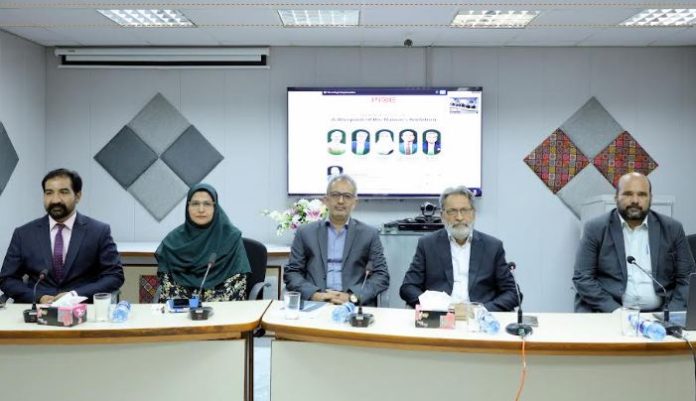ISLAMABAD, JUN 29 /DNA/ – The Pakistan Institute of Development Economics (PIDE) hosted a high-profile seminar titled “Budget 2025–26: A Blueprint of the Nation’s Ambition” to unpack the federal budget’s promise, progress, and gaps. The seminar brought together policy experts, economists, and business leaders to evaluate whether the budget aligns with Pakistan’s aspirations for inclusive growth, resilience, and a knowledge-driven economy.
Applauding Stabilization, Questioning Vision
Opening the discussion, Dr. Mahmood Khalid (PIDE) acknowledged the government’s efforts to stabilize the macroeconomic environment, control deficits, and improve investment confidence amidst global uncertainty. However, he questioned whether the budget represents a transformative vision or remains an accounting exercise. Dr. Khalid stressed that strategic coherence, fiscal credibility, and transparency are essential to convert the macroeconomic stability into sustained development gains.
Revenue Strategy Needs Broadening, Not Burdening
Dr. Ali Salman (PRIME Institute) appreciated the government’s realistic revenue targets but noted that relying heavily on raising existing tax rates burdens low- and middle-income households while discouraging business expansion. He recommended:
• Broad-based tax reforms targeting under-taxed sectors,
• Decentralization of fiscal authority to provinces and local governments,
• Performance-linked budget allocations,
• Simplified and predictable tax policy to reduce compliance burdens.
Toward a Green, Digital Economy
Dr. Safdar Sohail (SPRC) highlighted renewed attention to economic recovery but found the budget lacking in policy clarity for green growth and technology integration. He emphasized:
• Modernizing the economy through green and circular economy policies,
• Leveraging AI and digitalization for productivity gains,
• Expanding regional trade to diversify growth,
• Using the budget as a policy delivery tool for climate, competition, and service sector reforms.
IMF Conditions: Navigating Constraints with Coordination
Dr. Hafsa Hina (PIDE) noted that while IMF-backed stabilization has created fiscal discipline, it has constrained long-term development planning. She warned of potential inflation due to global volatility, carbon taxation, and energy price adjustments but remained optimistic if macroeconomic and structural policies are well-coordinated.
Business Climate Requires Consistency
Mr. Qazi (ICMA Pakistan) emphasized the need for predictable and consistent policies to encourage private investment. Abrupt measures like e-invoicing, without adequate preparation, add uncertainty and costs. He advocated:
• Linking tax policy with economic growth objectives, not just revenue targets,
• Empowering local governments for service delivery,
• Gender- and wealth-responsive budgeting,
• Strengthening institutional accountability to build trust.
Creating a Free, Competitive Market Environment
Representing the Islamabad Chamber of Commerce and Industry, Mr. Ramzan highlighted that high corporate and sales tax rates, alongside regulatory unpredictability, hinder investment and job creation. He urged:
• Gradual, targeted reforms to expand the tax base through technology,
• Policy stability to reduce the cost of doing business,
• A freer, more competitive environment to foster entrepreneurship and exports.
Key Takeaways: From Stability to Sustained Reform
The seminar acknowledged the government’s commitment to macroeconomic stabilization and prudent fiscal management but emphasized that stability is a stepping stone, not the final goal. Pakistan needs to leverage this stability to drive structural reforms and a clear development vision.=DNA
===========

















